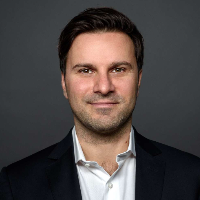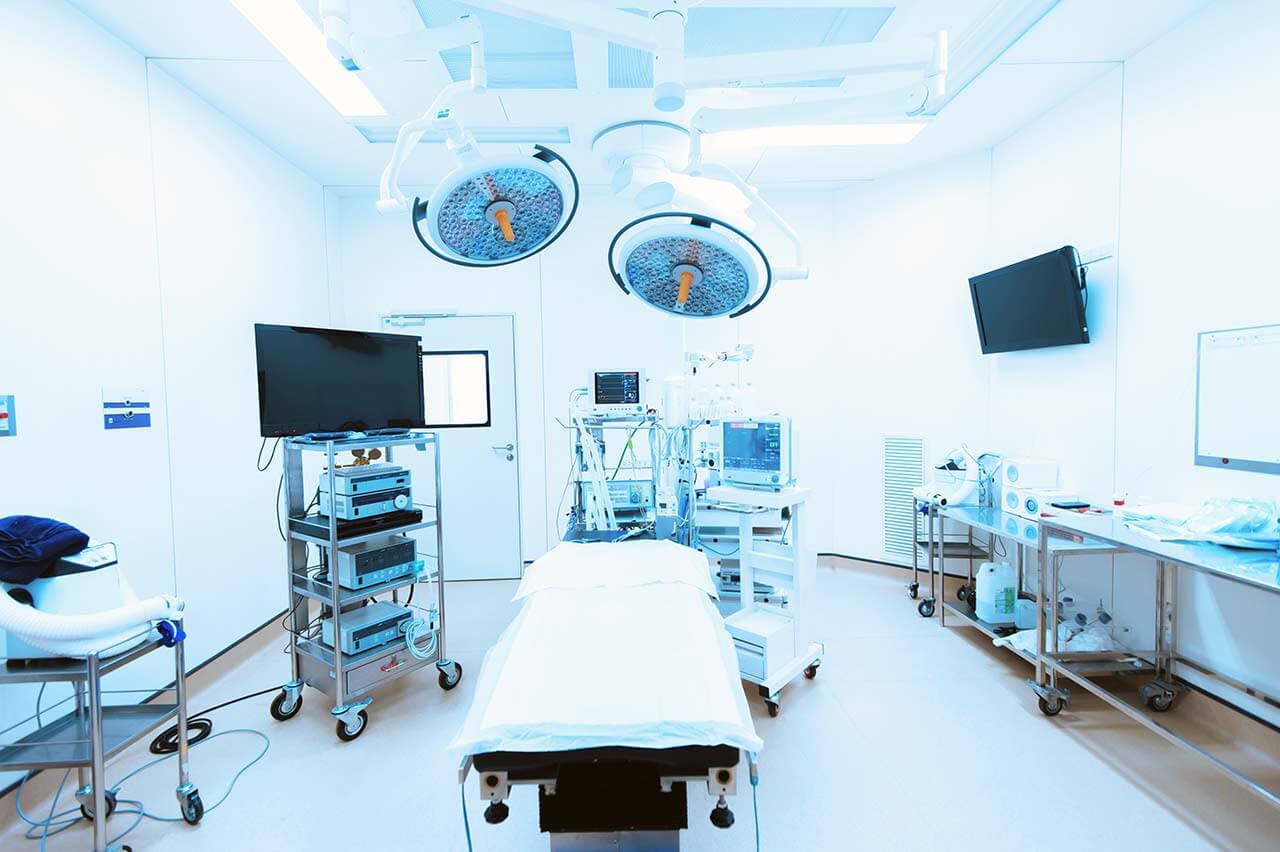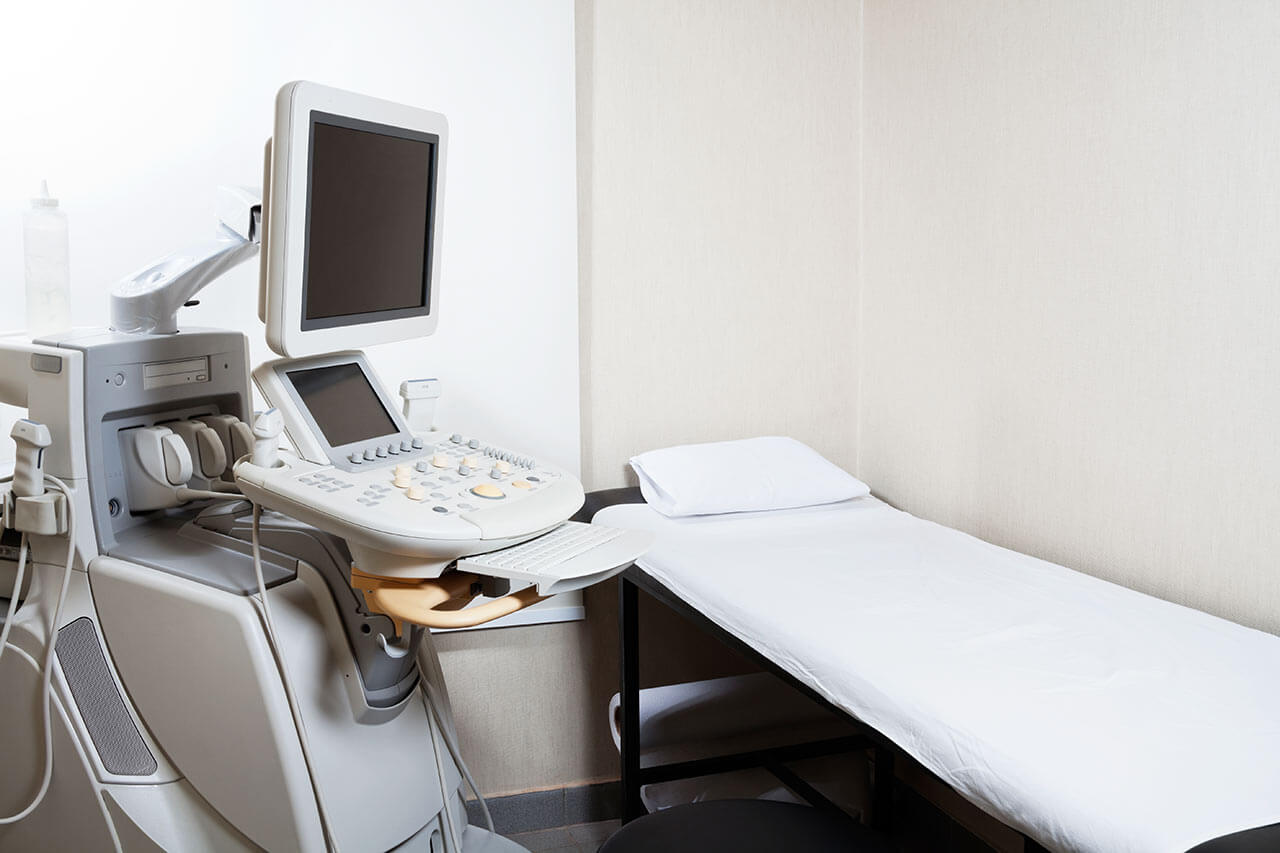
The program includes:
- Initial presentation in the clinic
- clinical history taking
- general clinical examination
- laboratory tests:
- complete blood count
- clinical urine test
- kidney function test (creatinine, urea)
- blood coagulation analysis (aPTT, PT, INR)
- inflammation indicators (CRP, ESR)
- tumor markers
- pelvic ultrasound
- CT scan (on indication 650 €)
- MRI scan (on indication 1200 €)
- cystoscopy with biopsy and histological examination (on indication 2000 €)
- nursing services
- consultation of related specialists
- consultation of the chief physician and all leading experts
- development of individual treatment plan
- written statement
Service
You may also book:
 BookingHealth Price from:
BookingHealth Price from:
About the department
The Department of Adult and Pediatric Urology, Andrology at the Urology Clinic Wiener Platz Munich offers comprehensive diagnostics and conservative and surgical treatment of diseases of the male genital organs and urinary system in men and women. The department has also formed an experienced team of pediatric urologists, whose responsibilities include consultations and treatment for young patients with pathologies of the genitourinary system. The department's range of therapeutic services is complemented by andrology. The specialists in this medical field treat representatives of the stronger sex with erectile dysfunction, infertility, andropause (male menopause), and other disorders. The department has unique experience in the field of early detection and treatment of prostate cancer. The doctors have at their disposal the very latest methods of conservative therapy and also brilliantly perform minimally traumatic surgical procedures for the treatment of urological pathologies. The medical facility places great importance on patient follow-up care, which ensures successful long-term outcomes. The department's doctors work in strict accordance with the recommendations of the German Society of Urology (DGU), the European Association of Urology (EAU), and the American Urological Association (AUA).
The department is headed by Dr. med. Daniel Kaminski. The specialist graduated from the Ludwig Maximilian University of Munich and the Free University of Berlin, practiced in Cape Town and Tel Aviv, and had his fellowship in the USA. Dr. Kaminski is a highly qualified urologist with over 10 years of successful clinical experience. He is ranked among the top five urologists in Munich by the online platform Jameda, based on patient reviews.
Most of the department's patients seek medical help for prostate diseases. Prostate cancer is the most common type of oncology in men worldwide. The department's specialists most often diagnose cancer during preventive examinations using a PSA (prostate-specific antigen) test and transrectal ultrasound of the prostate gland. When prostate cancer is detected in its early stages, patients have a high chance of recovery. During the treatment planning phase, the urologists in the department determine a man's prostate cancer risk profile. In the case of low-risk cancer, there is practically no danger of the oncological process spreading, so in this case it is sufficient to monitor the patient over time. If the specialists are dealing with high-risk cancer, the patient is indicated for surgery (radical retropubic prostatectomy, radical perineal prostatectomy, or robot-assisted radical prostatectomy) and/or radiation (external beam radiation therapy or brachytherapy) and chemotherapy. In collaboration with colleagues from the University Hospital Rechts der Isar Munich and the ISAR Hospital Munich, the department's urologists also offer an innovative treatment for prostate cancer using the HIFU method. This is a local procedure in which the therapeutic effect is achieved by the impact of high-intensity focused ultrasound waves on cancer cells without damaging the skin and nearby tissues or organs.
Benign prostatic hyperplasia (prostate adenoma) is also a fairly common diagnosis in the daily clinical practice of the department's urologists. The main diagnostic methods for suspected prostate adenoma include examination and palpation of the prostate, as well as transrectal ultrasound. Treatment may be conservative or surgical. It depends on the degree of enlargement of the prostate gland and the severity of the symptoms. In the early stages of the pathology, the department's doctors recommend drug therapy with modern medication. If such treatment does not give the desired result or is inappropriate due to the severity of the pathological process, the possibility of a surgical procedure is considered. Minimally traumatic transurethral resection of the prostate is currently the "gold standard" for surgical treatment of prostate adenoma. In complex clinical cases, the urologists of the department perform the laparoscopic Millin's procedure.
The department also has extensive experience in providing medical care to patients with bladder diseases. Of particular interest to the urology team is the treatment of bladder cancer, cystitis, and urinary incontinence in men and women. The diagnostic protocol for suspected bladder cancer includes ultrasound scans, cystoscopy, excretory urography, laboratory tests, and a biopsy with histological examination of the biological material obtained. An endoscopic procedure, transurethral resection of the bladder, is an effective treatment method for early-stage bladder cancer. In the advanced stages of cancer, a cystectomy (surgery to remove the bladder) is required. In such cases, the patient is also prescribed conservative treatment methods, including chemotherapy, targeted therapy, and immunotherapy. The main treatment for cystitis is antibiotic therapy. The drug regimen is prescribed individually after studying the diagnostic results. The department offers all modern treatment methods for patients with urinary incontinence. First of all, conservative therapy options are considered, such as special training to strengthen the pelvic floor muscles, biofeedback, and electrical stimulation. The last-line treatment is surgery.
The department offers services in the field of andrology. The most common pathology on this spectrum encountered by the doctors of the department is erectile dysfunction (impotence). This disease is the inability to achieve and/or maintain an erection necessary for sexual intercourse. Erectile dysfunction often occurs against the background of hormonal imbalances, stress, and psychological problems. Men with cardiovascular diseases, hypertension, diabetes mellitus, Parkinson's disease, and multiple sclerosis are at risk. Determining the cause of impotence plays a key role in successful treatment, which is why urologists perform a series of diagnostic tests when a patient is admitted to the department. If impotence develops due to stress or depression, it is enough to work with a psychologist. Patients with erectile dysfunction are almost always advised to take medications according to the individual instructions of the attending physician. The specialists in the department also use such highly effective methods of erectile dysfunction treatment as shockwave therapy and vacuum therapy. In more complex cases, intracavernous injection therapy may be performed. The last-line treatment is penile prosthesis implantation. The department performs operations to implant the AMS 700 prosthesis. This implantable system has been well proven and provides effective results.
The department specializes in the diagnostics and treatment of the following diseases:
- Urology
- Prostate diseases
- Prostate cancer
- Benign prostatic hyperplasia
- Acute and chronic prostatitis
- Bladder diseases
- Cystitis
- Urinary incontinence
- Bladder cancer
- Penile diseases
- Penile curvature
- Phimosis
- Short frenulum
- Testicular diseases
- Testicular cancer
- Orchitis
- Hydrocele
- Testicular torsion
- Varicocele
- Chronic pain syndromes
- Chronic pelvic pain
- Chronic testicular pain
- Sexually transmitted diseases
- Gonorrhea
- Chlamydia
- Syphilis
- Mycoplasmosis
- Ureaplasma
- Mycosis
- Condylomas acuminata
- Genital herpes
- Urological diseases in children
- Hypospadias
- Epispadias
- Phimosis
- Undescended testicles
- Enuresis
- Prostate diseases
- Andrology
- Erectile dysfunction
- Male infertility
- Andropause (male menopause)
- Testosterone deficiency
- Other diseases
The department's range of diagnostic and therapeutic services includes the following:
- Diagnostics
- Laboratory tests
- Endoscopic examinations
- Ultrasound examinations
- Urodynamic testing
- Fusion prostate biopsy under ultrasound and MRI guidance
- Spermogram
- Treatment
- Conservative treatment
- Drug therapy: taking pills and injection therapy
- Shockwave therapy
- Vacuum therapy
- Electrical stimulation
- Biofeedback
- Surgical treatment
- Outpatient surgical procedures
- Circumcision
- Genital wart removal
- Frenuloplasty
- Vasectomy (male sterilization)
- Inpatient surgical procedures
- Radical retropubic prostatectomy, radical perineal prostatectomy, and robot-assisted radical prostatectomy
- Transurethral resection of the prostate
- Transurethral resection of the bladder
- Transurethral urethrotomy
- Laparoscopic Millin's procedure
- Endoscopic removal of stones from the ureter and bladder
- Vasovasostomy (surgery to restore fertility after a vasectomy)
- Orchiectomy (surgical removal of the testicle)
- Varicocele surgery
- AMS 700 penile implant placement for erectile dysfunction
- Outpatient surgical procedures
- Conservative treatment
- Other diagnostic methods, conservative treatments, and surgical treatments
Curriculum vitae
Higher Education and Professional Career
- 2000 - 2006 Medical studies, Ludwig Maximilian University of Munich and Free University of Berlin.
- 2005 Thesis defense, summa cum laude. Subject: "Assessment of renal perfusion using MRI".
- 2005 - 2006 One-year internship abroad, Cape Town and Tel Aviv.
- 2006 Fellowship, Northwestern Memorial Hospital in Chicago.
- 2006 - 2007 Assistant Physician, Urology Clinic Wiener Platz Munich.
- 2007 - 2013 Preparation for board certification in Urology and Andrology, University Hospital Rechts der Isar Munich.
- 2010 Internship in Urologic Surgery, University Hospital Zurich.
- 2013 Board certification in Urology and Andrology.
- Since 2013 Head Physician, Department of Adult and Pediatric Urology, Andrology, Urology Clinic Wiener Platz Munich.
Clinical Focuses
- Diagnostics and treatment of bladder emptying disorders in men and women.
- Diagnostics and treatment of oncological diseases of the urological spectrum.
- Diagnostics and treatment of kidney stone disease.
- Diagnosis and treatment of andrological diseases.
Photo of the doctor: (c) Urologie am Wienerplatz Grünwald, (c) Fotografie Thomas Straub
About hospital
The Urology Clinic Wiener Platz Munich is a highly specialized medical complex with state-of-the-art equipment and highly qualified doctors. The clinic specializes in the diagnosis and treatment of diseases of the male reproductive system (prostate, testicles, and penis), bladder, and kidneys. The healthcare facility also provides treatment for andrological diseases with special emphasis on erectile dysfunction and male infertility. In addition, the clinic employs pediatric urology specialists who successfully treat diseases of the genitourinary system in young patients. The clinic works closely with the University Hospital Rechts der Isar Munich and the ISAR Hospital Munich.
The Urology Clinic Wiener Platz Munich has an in-house laboratory for a wide range of tests, including a urine culture, microbiological tests, tumor marker tests, a semen analysis, urethral swab tests, and sex hormone tests. The clinic also has state-of-the-art equipment for ultrasound diagnostics and endoscopic equipment from the famous German company Karl Storz. In the clinic's operating theaters, which are equipped with the latest technology, surgical procedures of varying complexity are successfully performed, ranging from transurethral resection of the prostate and bladder to surgery for the implantation of the AMS 700 penile prosthesis.
The Urology Clinic Wiener Platz Munich is deservedly proud of its high treatment success rates, thanks to which it has gained a leading position in Germany and abroad. The doctors of the medical complex make every effort to provide top-class patient care in a pleasant and comfortable environment. Patients from abroad regularly seek medical help from the clinic, which indicates the excellent reputation of the healthcare facility in the international medical arena.
The clinic is a member of many professional societies, including the German Society of Urology (DGU), the European Association of Urology (EAU), the German Cancer Society (DKG), and the American Urological Association (AUA). The specialists at the Urology Clinic Wiener Platz Munich strictly adhere to the recommendations and standards of these organizations, which also contributes to the excellent quality of medical services.
Фото: (c) depositphotos
Accommodation in hospital
Patients rooms
The patients of the Urology Clinic Wiener Platz Munich stay in comfortable rooms with a modern design. All patient rooms and diagnostic and treatment facilities at the clinic are designed in light colors, which contributes to a peaceful atmosphere and the rapid recovery of patients. Standard patient rooms are furnished with a comfortable bed, a bedside table for storing personal belongings, a wardrobe, a telephone, and a TV.
Meals and Menus
The patients of the clinic are offered delicious and balanced meals three times a day: breakfast, lunch, and dinner. An individual menu can be provided to the patient if necessary.
Further details
Standard rooms include:
![]() Toilet
Toilet
![]() Shower
Shower
![]() Wi-Fi
Wi-Fi
![]() TV
TV
Hotel
You may stay at the hotel of your choice during the outpatient program. Our managers will support you for selecting the best option.




